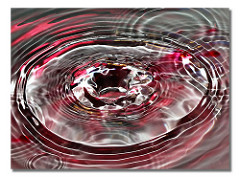Frontline Knowledge Explorer: An experiment in co-producing knowledge

Note: This was an experiment in collaborative knowledge generation which we carried out in 2009. Although it didn’t take off in the way we had hoped we learnt some valuable lessons, and you can click through the links below to see the results.
The Frontline Knowledge Explorer (FKx)
The Frontline Knowledge Explorer (FKx) was an initiative for individuals to share valuable first hand experience of working on climate change adaptation with fellow practitioners, decision makers, and others around the world. In this way, FKx was an experiment in the co-production of knowledge through an open and collaborative reflection on collective experiences.
The first topic, FKx 1: the linkages between disaster risk reduction and climate adaptation, was formally launched at the CBA Conference in Dhaka, Bangladesh, 18-24 February 2009 and online ‘invitations’ were distributed through the weADAPT, Eldis, IDRC CCAA and UNDP ALM mailing lists. The period for concerted contributions was originally between the 19 February and 27 March, but was extended to 3 April.
You can read the results of this experient here.
Background and Rationale
Responding to climate change requires new ways of thinking and doing. The Frontline Knowledge Explorer evolved from a meeting of climate change knowledge service providers committed to developing new ways of working together and with others to meet the challenges of climate change.
We wanted to explore:
- How we might go about generating knowledge together through reflecting on our collective experiences and thinking; and
- What might be generated by doing this.
Why?
Climate change is one of those complex challenges we face that affects us all and that we will all need to be part of tackling. People have been adapting to changes in the climate (natural variability) but due to our influences on the climate system, through activities that result in the emission of greenhouse gases, the changes are deviating from what they would otherwise have been (human-induced or anthropogenic climate change). We now not only know that but we also know something about what those changes in the climate are and will be in the future. This puts us in a position to learn from what we and others have done in the past to respond to climate (mixed in with other factors), to act on climate change accordingly and in turn to reflect and learn from these experiences and act again… ad infinitum. Instead of doing this only individually or independently we see value in and a need for doing this more collectively and concertedly, not just the acting but the learning too. Some call this social learning. You could think of it as everyone holding a piece of the puzzle, and by sharing those pieces then the bigger picture becomes clear.
So…
We posed ourselves some questions that we could together begin to try and answer, maybe reaching consensus on some, maybe bringing to light some conflict over others and potentially coming up with new questions to answer. Through this written dialogue and debate we hoped to facilitate some social learning of our own and showcase one way of doing so in other contexts.
This experient was a test in using wikiADAPT (an early version of weADAPT) as a tool for facilitating this learning and co-production of knowledge. The outcome(s) we hoped would prove to be useful in and of itself. The strength of this was reliant on our willingness to:
* try a new technology, which may initially be scary and discomforting * find time * trust, both the process and the people * use our voice (or keyboard!), share, contribute, put it out there * be inclusive * teach and learn * edit and be edited * walk the line between collaboration and competition… generating creativity at the edge of chaos
In order to make this doable we thought it would be useful to start by tackling a manageable “chunk” of the climate change discussion (FKx 1: the linkages between disaster risk reduction and climate adaptation), a chunk that was broad enough to give lots of us the sense that we have something to contribute, but targeted enough that it didn’t overwhelm us and we could each find a point of entry.
(0) Comments
There is no content